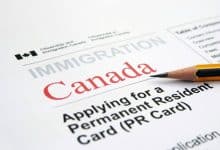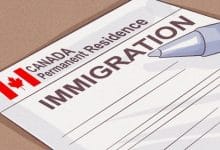Immigrate To Canada Without A Degree
How To Immigrate To Canada With No Qualification
To immigrate to Canada without a degree is now possible for aspirants wishing to relocate to Canada. You don’t need a degree to relocate to Canada. All skill levels and sets, including semi-skilled and tradespeople, are actively sought after in Canada. Statistics on immigration show that Canada cherishes variety of skillsets and provides opportunity for people without formal education to start new lives there. Canada has a wide range of choices for you, no matter your skill set or work experience. Finding the best immigration opportunity for you is the key. It is feasible to immigrate to Canada without a degree, and there are programs that are designed with people like you in mind.
How to Immigrate to Canada Without a Degree
Are you considering moving to Canada without a degree in order to work? While having a degree can be advantageous, it is not always necessary for all Canadian jobs.
This step-by-step guideline will show you how to enter Canada without a degree and get employed there.
| Steps | Action |
| 1 | Find Out if You Need a Work Permit |
| 2 | Prepare an Updated Resume |
| 3 | Start Scouting for Canadian Jobs That You Want to Apply For |
| 4 | Start Your Application Today |
Step 1: Find Out if You Need a Work Permit
Not all jobs in Canada demand a work visa. Some Canadian jobs do not require a work permit. You can ask for help to learn more about these jobs if you’re unsure whether the job you want requires a work permit. If you do require a work permit, you can apply for one through the International Mobility Program (IMP) or the Temporary Foreign Worker Program (TFWP).
Step 2: Prepare an Updated Resume
Making an updated and polished résumé is one of the most important tasks in your immigration process. Your CV is your ticket to an interview, therefore it’s critical to highlight your relevant experience and talents. Since you lack a degree, emphasize your skills that are pertinent to the job for which you are seeking. Be careful to structure your resume using the Canadian format as well.
Step 3: Start Scouting for Canadian Jobs That You Want to Apply For
You can start exploring Canadian jobs that match your talents and work experience once your resume is ready. Use Canadian job portals that are online, such as Career Builder and Canada Job Bank. For employment openings, you can also look in the official employment Bank of Canada. You may want to get tips on Canadian job interview questions for aspirants
Step 4: Start Your Application Today
Taking action—it’s the most crucial step. Send your immigration applications to Canada in the mail now. Careerinfos.com can help you if you need assistance at any point in the procedure. They can support you during the application process and assist you in determining which visa program you qualify for.
You can start the process of moving to Canada without a degree by taking these steps. Though a degree might not be necessary, having relevant skills and a well-presented résumé can significantly improve your chances of success. Start your application right away to start living the Canadian life!
Choose Your Immigration Route To Immigrate Without A Degree
Examine all of the choices as you navigate your way to Canada where you want to start a new life. Choose the immigration path that best suits your credentials, abilities, and goals as you confidently set out on your immigration journey.
The Express Entry System
The Express Entry system is designed to make it as quick and easy as possible for highly talented foreigners to immigrate to Canada. There are three main programs in the Express Entry System:
- The Federal Skilled Worker Program
- The Federal Skilled Trades Program
- The Canada Experience Class
The Canadian Experience Class and the Federal Skilled Trades Program, two of Express Entry’s programs, do not require a university degree, however the Federal Skilled Worker Program does. Each program has its own distinct set of specifications. However, the following factors determine whether you qualify for the Express Entry system:
Express Entry Eligibility Criteria
- Nationality
- Age
- Language Ability
- Education
- Work experience
- Links to Canada
You can earn points by meeting each requirement. The greater your score, the more likely it is that your application will be accepted giving you a chance to immigrate to Canada without a degree.
Provincial Nominee Programs
The Provincial Nominee Program can be the best option for you if you are a foreign worker who wants to move to Canada and have a legitimate job offer that is valid for at least one year. Eleven of Canada’s provinces and territories have distinctive policies and regulations, such as programs for in-demand jobs that let you apply through programs related to Express-Entry. Identifying where your job is needed in Canada is the key to success in this situation. Your chances of being given a Provincial Nomination (PN) to apply for Canadian permanent residency increase with the level of demand!
The Atlantic Immigration Pilot
Foreign employees who desire to immigrate to one of Canada’s Atlantic provinces are the focus of the Atlantic Immigration Pilot.
The provinces includes;
You must be eligible for one of the following programs in order to apply to live and work in Atlantic Canada through the AIP:
- Atlantic Immigration Programs
- Atlantic High-Skilled Program
The Rural and Northern Immigration Pilot
If you want to move to one of the 11 participating cities and towns in Ontario, Manitoba, Saskatchewan, Alberta, or British Columbia, the Rural and Northern Immigration Pilot (RNIP) is your ticket to immigrate to Canada without a degree. You must fulfill the following criteria in order to be eligible:
RNIP Eligibility Requirements
- Possess a minimum of one year of recent work experience.
- A Canadian high school diploma, post-secondary credential, or something comparable is required.
- For TEER 0 and 1, a language test in English or French (CLB/NCLC 6); for TEER 2 and 3; and for TEER 4 and 5 (CLB/NCLC 5); is required.
- Possessing enough money to support you and your family
- Offer of a legitimate full-time, nonseasonal job from a company in one of the 11 participating areas.
The work experience requirements for this pilot do not apply to foreign students studying in Canada. However, if your program is shorter than two years, you must provide a certificate from a post-secondary institution that was at least two years in length or a master’s degree or higher.
Agri-Food Pilot
The Agri-Food Pilot (AIP), which began in May 2020, aims to facilitate the immigration of talented professionals from the agricultural and animal production sectors, as well as the meat processing and manufacturing industries, to Canada.
You must fulfill the requirements listed below to be eligible:
AIP Eligibility Requirements
- Possess at least one year of recent full-time, nonseasonal employment in a profession that qualifies.
- A high school diploma from Canada or its equivalent
- French or English language assessment (CLB/NCLC 4)
- Having enough money to support you and your family
- Offer of a legitimate full-time, nonseasonal work in a qualifying occupation
The Home Care Provider Pilots
In Canada, there is a strong demand for home care services. Because of this, the Canadian government has established two distinct Home Care Provider Pilots to aid with the employment and living arrangements of home childcare providers and home support workers.
The prerequisites for eligibility are:
Caregiver Pilot Eligibility Requirements
- Possess a legitimate full-time job offer in a qualified occupation or at least two years of recent full-time Canadian employment in that occupation.
- A postsecondary degree or equivalent with at least one year of relevant experience
- French or English language assessment (CLB/NCLC 4)
- Having enough money to support you and your family
- Supporting documentation demonstrating your suitability for the position, such as transcripts attesting to your education and professional experience,
Do you still question if you can enter Canada without a degree? Since many degree-exempt programs demand that you get a job first, let’s look at what Canada has to offer.
Skill Levels Breakdown In Canada
There are more options than you would realize for people without degrees in the various Canadian immigration schemes. Your skill level, employment experience, and whether or not you have a job offer are the three key considerations while looking for the best immigration program.
In Canada, high-skilled positions are typically categorized at NOC TEER levels 0, 1, or 2, and intermediate or low-skilled jobs are typically categorized at TEER levels 3, 4, or 5.
| NOC Teer Level | Description |
| TEER 1 | Jobs for professionals like doctors, lawyers, and accountants |
| TEER 2 | Technical or skilled trade jobs such as chefs, plumbers, or electricians |
| TEER 3 | Jobs in the processing, transportation, and hospitality sectors, such as retail butchers, long-haul truck drivers, and roofers |
| TEER 4 | Jobs like desk clerks, receptionists, and bartenders |
| TEER 5 | Jobs like fruit pickers, cleaning staff, and food and beverage servers |
Moving to Canada with no qualifications shouldn’t seem all that unlikely now that you are aware of your skill level and any potential educational requirements.
Searching For Best Jobs in Canada Without a Degree
A successful or well-paying career is frequently associated with having a university degree or prior experience. It’s important to keep in mind that many career opportunities in Canada don’t necessitate a degree or a specified amount of work experience in a given industry. You may make well-informed selections about your career alternatives by being aware of the highest-paying jobs that are open to those without a degree or relevant expertise. A university degree is not a requirement for many employment in Canada because the country prioritizes skills and experience.
Jobs That Requires No Degrees In Canada |
|
| Jobs | Average Salary |
| Miners | 78,609 CAD per year |
| Maintenance Manager | 75,003 per year |
| Receptionists | 33,150 CAD per year |
| Warehouse Worker | 32,175 CAD per year |
| Executive Chef | 54,915 CAD per year |
Moving To Canada With No Qualifications
Even though moving to Canada without the necessary skills can be difficult, Canada is renowned for its liberal and inclusive immigration laws. The nation respects diversity and sees the potential in people who are prepared to give back to society. While having credentials can undoubtedly increase your prospects, Canada also offers chances for people without formal credentials to start a new life.
The goal of Canada’s immigration policy is to draw qualified workers who can contribute to the economy and close gaps in the labor market. However, Canada also recognizes that credentials aren’t the only indicator of a person’s potential. They take into account a number of things while evaluating applicants, including employment experience, language skills, adaptability, and readiness to learn. Your chances of being accepted improve if you show that you are dedicated to starting a life in Canada.
FAQs On How To Immigrate To Canada Without A Degree
Can I Find an Employment Without a Degree in Canada?
Candidates without a degree may still qualify for a work visa even though professional-level occupations in Canada normally ask for a bachelor’s degree. To fulfill the criteria of the job, they must, nevertheless, show that they have the necessary abilities, training, education, and language skills. See top tips on finding jobs in Canada.
Can I Use My Diploma to Work in Canada?
You can obtain a Post-Graduation Work Permit (PGWP), which lets you to remain in Canada and work full-time, after completing a certificate, diploma, or degree that was at least eight months long. You are not required to wait for a job offer to apply; you can work in any occupation in Canada, even one unrelated to your field of study.
Can Foreigners Work in Canada Without a Degree?
Yes. In Canada, skilled labor is constantly required. The Canadian labor market is constrained, not because there aren’t enough jobs available, but rather because there aren’t enough locally skilled employees to fill all of the open positions. Check out top paying skilled jobs in Canada
In order not to miss out on prompt updates from careerinfos.com, enter your email address below and hit the subscribe button beneath.
A confirmation link will be sent to your inbox or check your spam mails if its not in your inbox. Make sure you click the link to confirm your subscription in order not to miss any updates from this blog. All comments (related to the post above) should be dropped via the comment section below.








